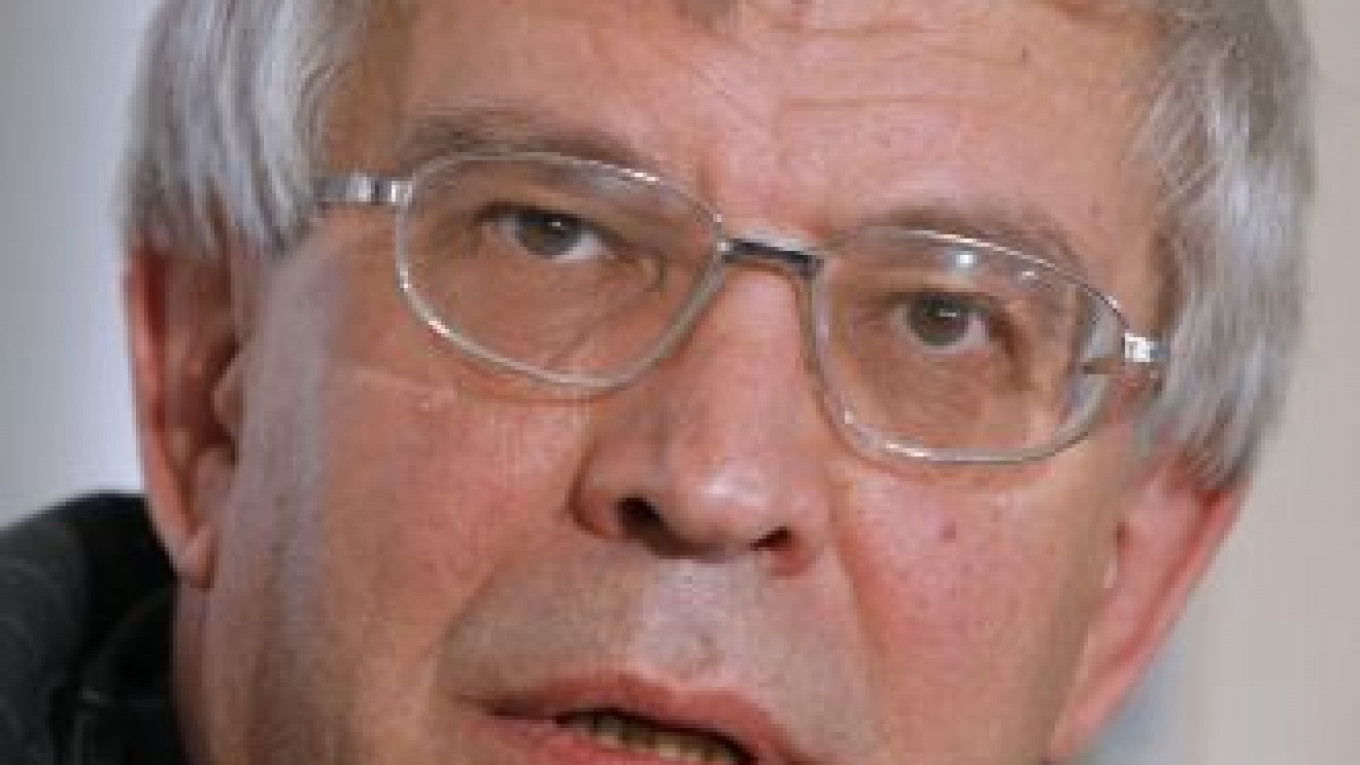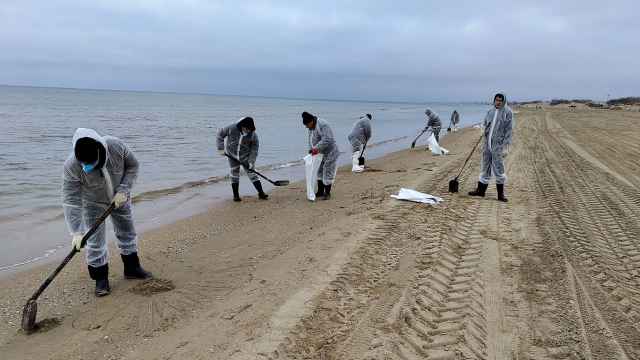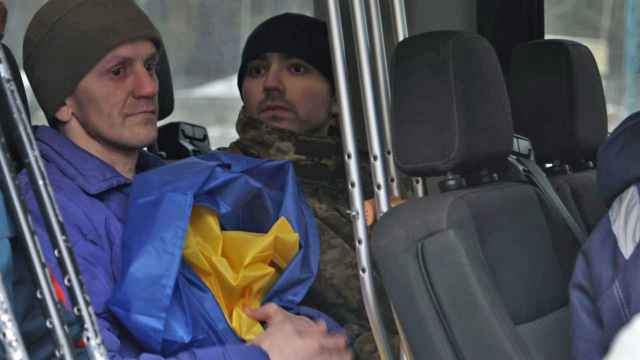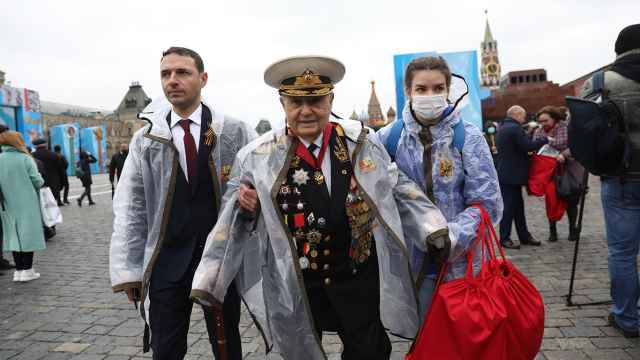The ruble closed Wednesday at its strongest level against the Central Bank’s dollar-euro basket for two months after Chairman Sergei Ignatyev said the regulator isn’t “afraid” of a stronger currency and will use interest rates to curb inflation.
The currency gained 0.4 percent to 35.59 by the close of trading in Moscow against the basket, which is used by the Central Bank to temper swings in the ruble that erode the competitiveness of exporters. It’s the strongest close since Oct. 14. The ruble climbed 0.9 percent to 41.12 per euro, the strongest since Nov. 30, and pared an earlier drop of as much as 1 percent against the dollar, closing 0.3 percent weaker at 31.08.
The Central Bank will seek to make the managed currency more flexible and is “not afraid of ruble appreciation,” Ignatyev told reporters in Moscow. The Central Bank is “beginning to worry” about inflation, which will exceed the government’s 8 percent forecast for this year, and isn’t excluding the possibility of raising policy rates in the first quarter, he added. Russia’s benchmark borrowing costs are currently at a record low after 14 cuts between April 2009 and May this year.
“Ignatyev and the Central Bank are worried about inflation and so that doesn’t exclude the possibility of hikes at the end of 2010 or the first quarter of 2011,” Alexander Dotkin, a bond trader at Bank Zenit, said by e-mail after the comments. “Those who expect the ruble to weaken will be disappointed.”
Higher key interest rates would bolster the ruble’s appeal as a target for the carry trade, where investors borrow funds in countries where borrowing costs are low and then invest the money where the returns are higher.
With benchmark interest rates in the United States and Japan near zero, emerging markets such as Brazil, with its 10.75 percent target rate, and South Africa, at 5.5 percent, are luring investors. While Russia doesn’t yet target a specific target, its refinancing rate is at a record-low 7.75 percent, the overnight repurchase rate is 5 percent, and the deposit rate is 2.5 percent.
“High interest rates, better ruble, that’s clear,” said Ivan Tchakarov, chief economist for Russia and the former Soviet Union at BofA Merrill Global Research in Moscow.
The Central Bank, which buys and sells foreign currency to limit the volatility of the ruble and keep it within a so-called “floating corridor” against the basket, will continue to liberalize the exchange rate, Ignatyev said today. The regulator will continue to widen the corridor, he added. The bank said in October that the range would shift 5 kopeks when interventions in the currency top $650 million.
Russia will allow the ruble to become an “almost” free-floating currency within two years, Ignatyev said. The Central Bank will also consider the possibility of a stronger ruble as the byproduct of raising interest rates, he said.
The ruble weakened against the dollar today along with 21 of the 24 other emerging market currencies tracked by Bloomberg. Investors sought out the safety of the greenback amid speculation that China will raise interest rates this weekend and as North Korea fired artillery shells near the disputed border with its southern neighbor, Piotr Matys, an emerging market analyst at 4Cast, said by phone from London earlier Wednesday.
The ruble is more likely to depreciate against the dollar and target basket toward the end of the year as Russian banks and companies seek out dollars to repay foreign currency-denominated loans, Matys said. The private sector has about $16 billion in foreign debt, including interest-rate payments, due this month, double the $8 billion of redemptions in October and November, Central Bank data show.
Once the redemption period is over, the ruble will probably strengthen versus the basket in the first half of 2011 as oil prices above $90 a barrel feed into Russia’s current account, according to both Matys and Citigroup’s Moscow-based economists Elina Ribakova and Natalya Novikova.
The ruble could advance 5.1 percent to as strong as 34 against the basket in the next six to 12 months, the Citigroup analysts wrote in a note to clients e-mailed Wednesday.
Russia’s dollar bonds due 2020 fell for a third straight day, pushing the yield up 2 basis points to 4.83 percent, the highest in a week. The yield on government ruble bonds maturing 2016 snapped a six-day decline, rising 3 basis points to 7.31 percent.
A Message from The Moscow Times:
Dear readers,
We are facing unprecedented challenges. Russia's Prosecutor General's Office has designated The Moscow Times as an "undesirable" organization, criminalizing our work and putting our staff at risk of prosecution. This follows our earlier unjust labeling as a "foreign agent."
These actions are direct attempts to silence independent journalism in Russia. The authorities claim our work "discredits the decisions of the Russian leadership." We see things differently: we strive to provide accurate, unbiased reporting on Russia.
We, the journalists of The Moscow Times, refuse to be silenced. But to continue our work, we need your help.
Your support, no matter how small, makes a world of difference. If you can, please support us monthly starting from just $2. It's quick to set up, and every contribution makes a significant impact.
By supporting The Moscow Times, you're defending open, independent journalism in the face of repression. Thank you for standing with us.
Remind me later.






